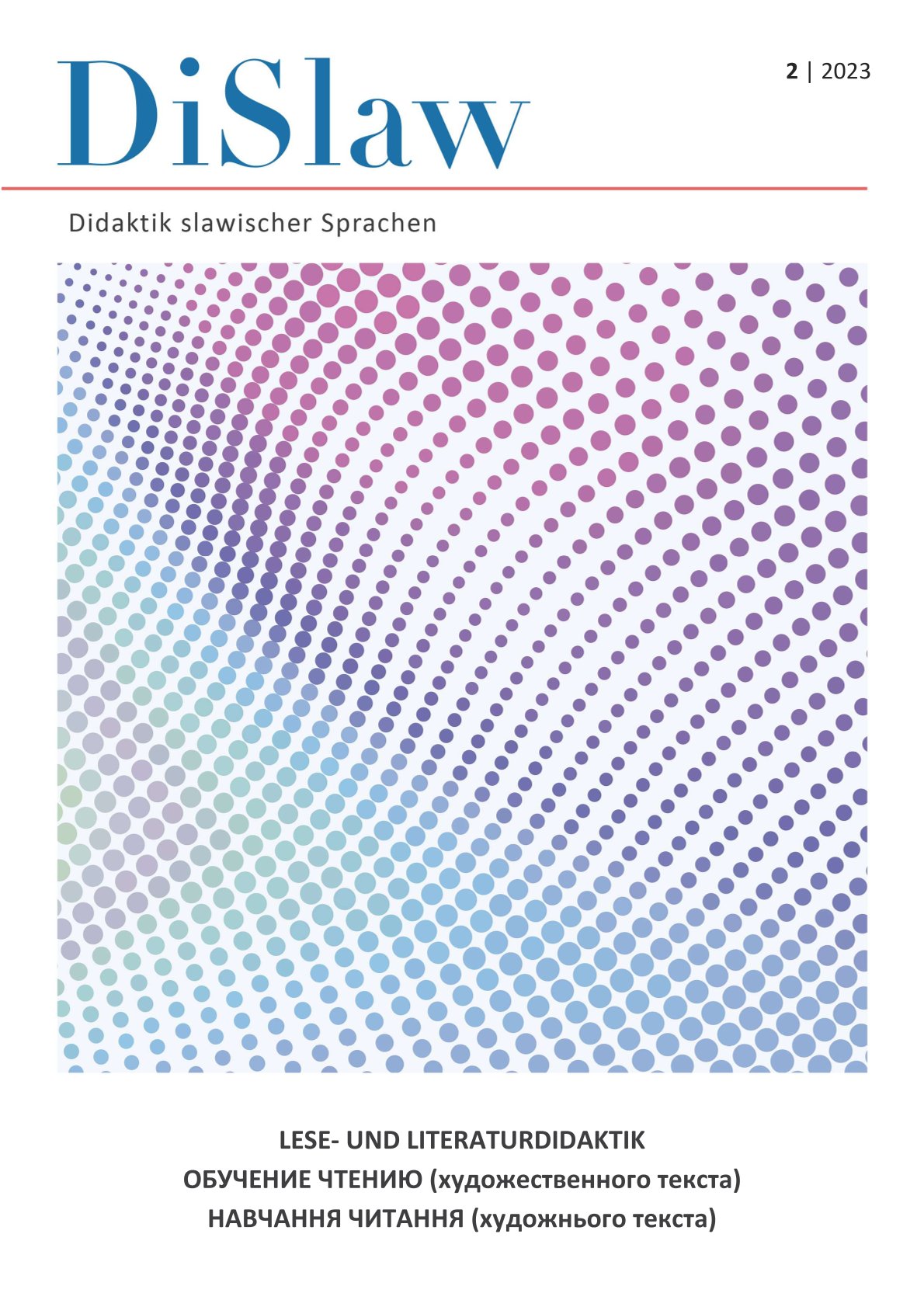Literary Translation as a Bridge in Slavic Studies Education
Opportunities for Promoting Reading and Analysis Techniques Using a Translation Project as an Example
DOI:
https://doi.org/10.48789/2023.2.2Keywords:
translation, reading techniques, linguistic awareness, intersection of linguistics and literary studiesAbstract
Drawing on a survey of recent reading didactics and its typical focus on communication, the authors emphasize the enduring relevance of (literary) translation for reading education. The deceleration of reading that characterizes the practice of translation appears as a form of close reading, which remains one of the key competences to be taught in Slavic studies today. Because translation studies can be located precisely at the intersection of linguistics, literary studies and language didactics, academic courses on translation offer the opportunity for a new integration of Slavic studies as a coherent discipline in times of ever-growing specialization. Using the example of a co-teaching seminar and a lecture on contemporary Russian-language prose including cultural components (the invitation of some of the writers, whose texts were being translated, to readings and discussions), the authors argue for cooperative responses to the current crisis in the humanities in general and Slavic studies in particular.



